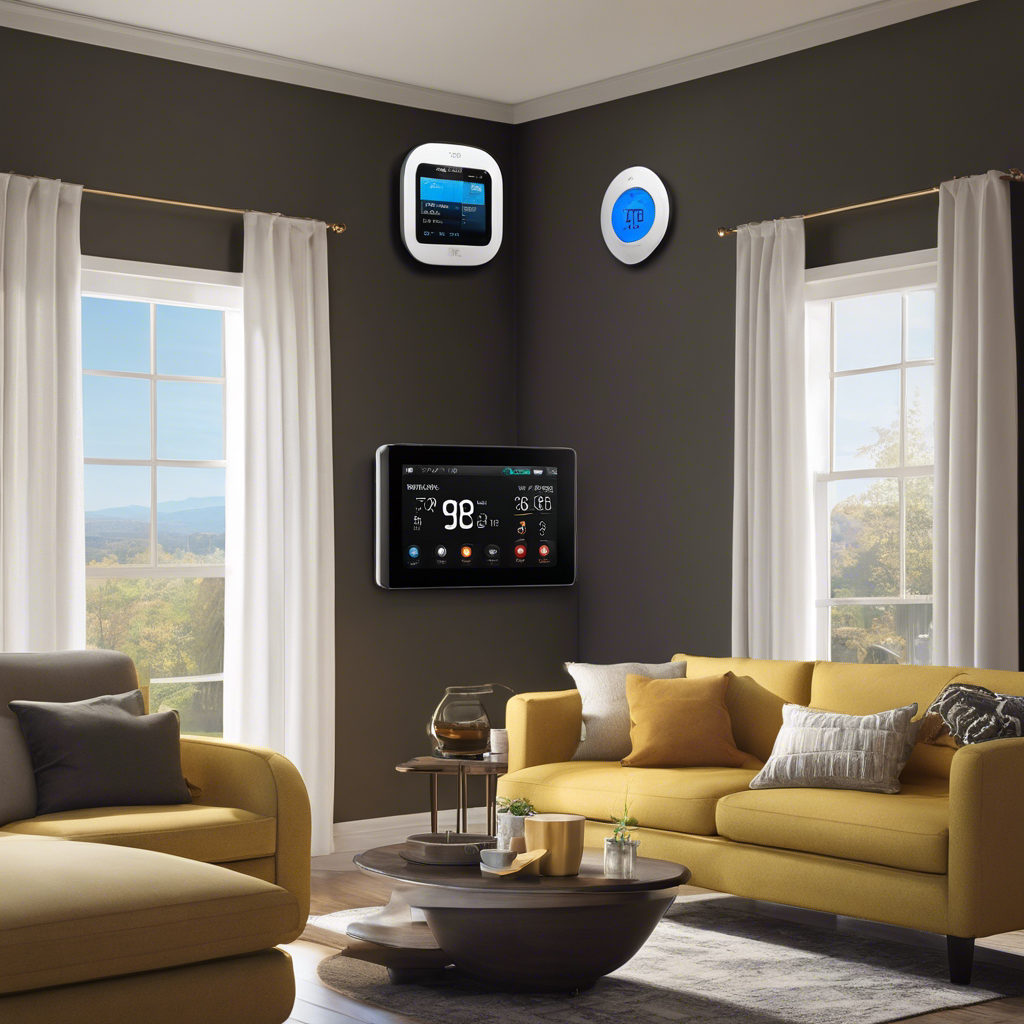Are you tired of feeling like your energy bills are burning a hole in your pocket? Just like a leaky faucet can slowly drain your bank account, your HVAC system could be silently guzzling energy and driving up your expenses.
But fear not, Tulsa residents, because there are practical tips that can help you rein in those costs and regain control of your budget. From regular maintenance to smart thermostat technology, this discussion will explore the impact of HVAC on your energy bills and provide you with valuable insights to help you keep your cool without breaking the bank.
So, let’s dive in and uncover the secrets to achieving optimal energy efficiency in your home.
Key Takeaways
- Regular HVAC maintenance is essential for maximizing energy efficiency and reducing energy consumption.
- Choosing the right HVAC system for your home, considering factors such as size, climate needs, and energy efficiency, can lead to significant energy savings.
- Simple steps like improving insulation, sealing air leaks, and upgrading to a programmable thermostat can improve HVAC efficiency and lower energy bills.
- Investing in a professional HVAC tune-up can ensure efficient system operation, identify and address issues, and provide valuable maintenance tips for energy efficiency and indoor air quality.
Importance of Regular HVAC Maintenance
Regular HVAC maintenance is crucial for maximizing energy efficiency and minimizing potential issues. By regularly maintaining your HVAC system, you can enjoy a range of benefits and significant cost savings.
One of the main benefits of HVAC maintenance is improved energy efficiency. When your system is clean and well-maintained, it operates more efficiently, resulting in lower energy consumption and reduced utility bills.
Additionally, regular maintenance helps prevent potential issues from arising, saving you from costly repairs down the line. By addressing small problems early on, you can avoid major breakdowns that could leave you without heating or cooling when you need it most.
Investing in HVAC maintenance not only ensures your comfort but also helps you save money in the long run.
Choosing the Right HVAC System for Your Home
When choosing an HVAC system for your home, it’s important to consider factors such as the size of your space, your climate needs, and your energy efficiency goals.
One key aspect to consider is the energy efficiency of the HVAC system. Energy efficient models can help you save on your energy bills in the long run. These models are designed to use less energy while still providing the same level of comfort.
Another important factor to consider is HVAC system sizing. A system that’s too small for your home will struggle to cool or heat your space effectively, while a system that’s too large will cycle on and off frequently, wasting energy.
It’s crucial to choose the right size HVAC system for optimal performance and energy efficiency.
Simple Steps to Improve HVAC Efficiency
To improve HVAC efficiency and reduce energy usage, follow these simple steps.
First, improve insulation in your home by adding weatherstripping to doors and windows to prevent air leakage. This will help maintain a consistent indoor temperature and reduce the workload on your HVAC system. Additionally, insulate your attic and walls to further prevent heat transfer.
Second, seal air leaks around ducts, windows, and electrical outlets using caulk or weatherstripping. These small gaps can cause significant energy loss and strain on your HVAC system.
Finally, consider upgrading to a programmable thermostat, which allows you to set different temperatures for different times of the day. This will help optimize your energy usage and reduce unnecessary heating or cooling.
Smart Thermostat: A Game-Changer for Energy Savings
A smart thermostat can revolutionize your energy savings by intelligently adjusting your home’s temperature settings. This energy-efficient technology allows you to program your thermostat to automatically adjust the temperature based on your schedule and preferences.
Gone are the days of manually adjusting your thermostat every time you leave the house or go to bed. With a smart thermostat, you can easily control the temperature from anywhere using your smartphone.
Not only does this save you time and effort, but it also helps reduce your energy consumption and lower your utility bills. By optimizing your heating and cooling settings, programmable thermostats can help you achieve significant energy savings without sacrificing your comfort.
Upgrade to a smart thermostat today and start enjoying the benefits of energy-efficient temperature control.
Professional HVAC Tune-Up: Worth the Investment?
Is a professional HVAC tune-up worth the investment in terms of energy savings and system longevity?
Absolutely.
While performing DIY HVAC maintenance can have its benefits, such as cost savings and a sense of accomplishment, there are certain aspects that are better left to the professionals.
A professional HVAC tune-up ensures that your system is running efficiently, which can lead to significant energy savings. They have the knowledge and experience to identify and address common HVAC problems, such as dirty filters, faulty thermostats, and refrigerant leaks.
By fixing these issues promptly, they can prevent bigger problems from occurring and extend the lifespan of your system.
Moreover, professional technicians have access to specialized equipment and tools that can detect hidden issues and optimize system performance. They can also provide valuable maintenance tips and recommendations for improving energy efficiency and indoor air quality.
Frequently Asked Questions
How Often Should I Clean or Replace My HVAC Filters?
You should clean or replace your HVAC filters every 1-3 months. Regular maintenance helps keep your system running efficiently, improves indoor air quality, and reduces energy costs. Don’t forget to schedule this important task!
What Are Some Common Signs That My HVAC System Needs Maintenance?
If your HVAC system is showing signs of malfunction, it’s important to schedule regular maintenance. This can help prevent costly repairs and ensure your system runs efficiently, saving you money in the long run.
Are There Any Tax Credits or Incentives Available for Upgrading to a More Energy-Efficient HVAC System?
Yes, there are tax credits and incentives available for upgrading to a more energy-efficient HVAC system. These can help offset the cost of installation and make it more affordable for you to save on energy bills.
Can I Install a Smart Thermostat Myself, or Do I Need to Hire a Professional?
You can install a smart thermostat yourself or hire a professional. DIY installation is an option, but hiring a pro ensures proper setup. Smart thermostats offer benefits like energy savings, remote control, and personalized schedules.
How Long Does a Professional HVAC Tune-Up Typically Take?
To find a reliable HVAC professional, ask for recommendations from friends or neighbors. Regular HVAC maintenance has benefits like improved efficiency and lower energy bills. The duration of a professional HVAC tune-up varies but can typically take a few hours.


